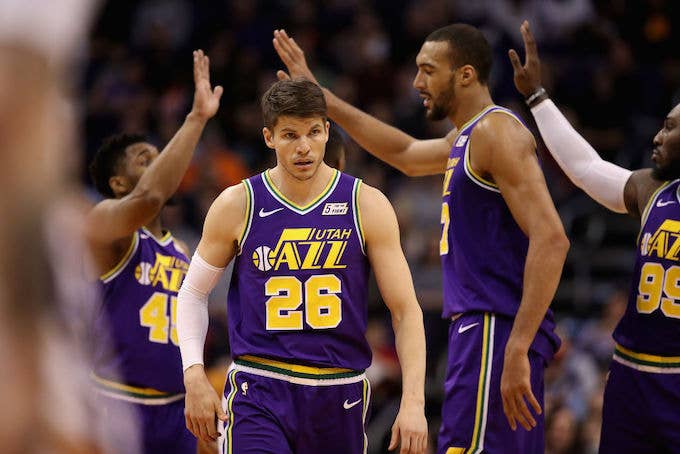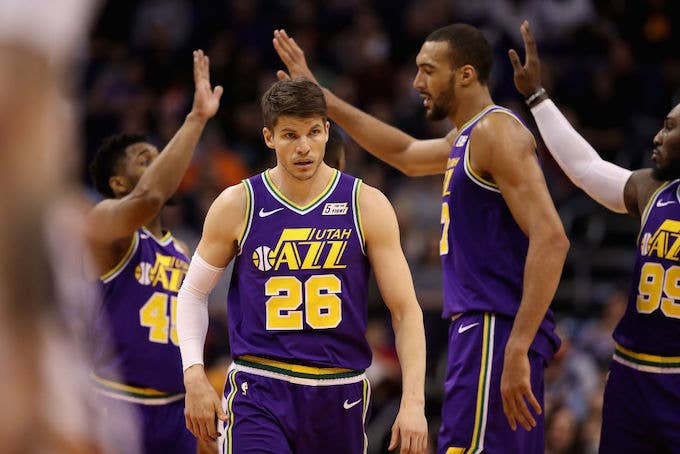
Utah Jazz player Kyle Korver shared a reflective essay he wrote, where he discusses his privilege as a white NBA player, what actions white people can take to help amplify the voices of marginalized groups, and how they can challenge the systemic racism that continues to plague our institutions and society.
Korver begins the piece by reflecting on how he responded to the news that teammate Thabo Sefolosha unjustly suffered injuries at the hands of white police officer in 2015. The small forward broke his right fibula after five officers threw him to the ground as he was leaving the nightclub 1 Oak, forcing him to undergo surgery and miss the 2015 playoffs.
"I still remember my reaction when I first heard what happened to Thabo," Korver writes. "My first thought was: 'What was Thabo doing out at a club on a back-to-back??' Yeah. Not, 'How’s he doing?' Not, 'What happened during the arrest??' Not, 'Something seems off with this story.' Nothing like that. Before I knew the full story, and before I’d even had the chance to talk to Thabo….. I sort of blamed Thabo."
Korver then admits that the victim-blaming thought process he immediately resorted to was out of reflex, and looking back on his response makes him feel ashamed. After New York City settled a federal lawsuit with Thabo, in which he accused the officers of using excessive force against him, Korver acknowledges that the incident faded into the abyss of forgotten news stories. "Pretty soon, another NBA season began — and we were back on the court again."
However, what happened to Sefolosha returned to the forefront of Korver's mind a few weeks ago when the Utah Jazz were playing the Oklahoma Thunder. During the game, Russell Westbrook responded to someone in the crowd who was yelling racially charged remarks at him. The exchange prompted a closed-door meeting with the president of the Jazz and the entire team, during which players shared stories of similar experiences.
"This wasn’t the first time they’d taken part in conversations about race in their NBA careers, and it wasn’t the first time they’d had to address the hateful actions of others," Korver writes. "And one big thing that got brought up a lot in the meeting was how incidents like this — they weren’t only about the people directly involved. This wasn’t only about Russ and some heckler. It was about more than that. It was about what it means just to exist right now — as a person of color in a mostly white space. It was about racism in America."
After the meeting concluded, Korver spent some time reflecting on his own identity as a white player in the NBA, prompting him to acknowledge that demographically, he has more in common with the white men and women in the crowd than he does with his teammates of color.
"What I’m realizing is, no matter how passionately I commit to being an ally, and no matter how unwavering my support is for NBA and WNBA players of color, I’m still in this conversation from the privileged perspective of optingin to it," he explains. "Which of course means that on the flip side, I could just as easily opt out of it. Every day, I’m given that choice — I’m granted that privilege — based on the color of my skin."
Korver concludes the essay by explaining that it's the responsibility of the privileged to take part in the efforts to create a more equitable society. "The fact that inequality is built so deeply into so many of our most trusted institutions is wrong," he explains. "And I believe it’s the responsibility of anyone on the privileged end of those inequalities to help make things right." Read the piece at the Players' Tribune.

